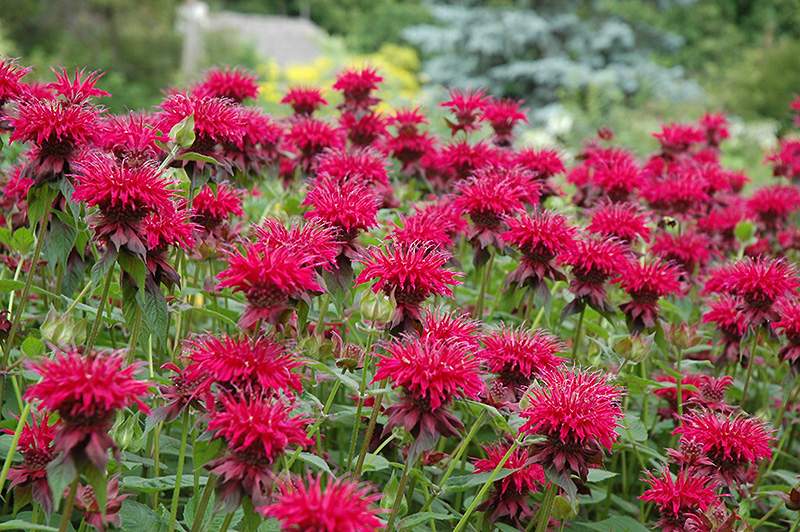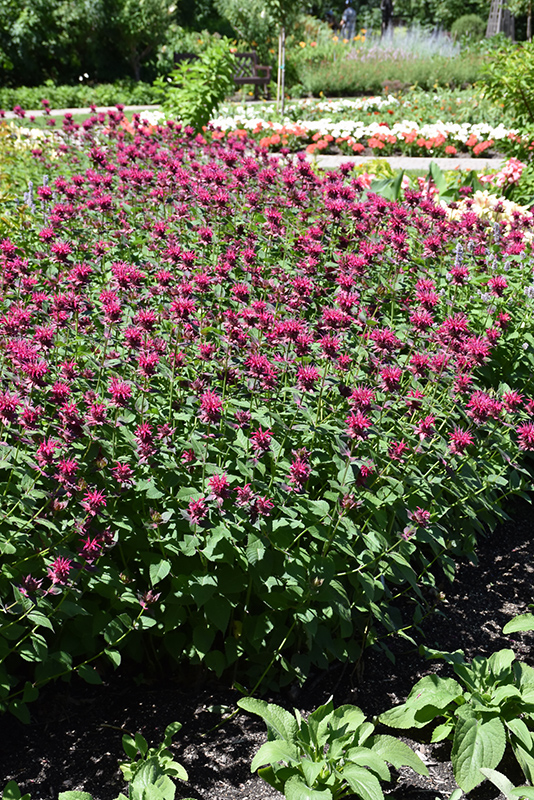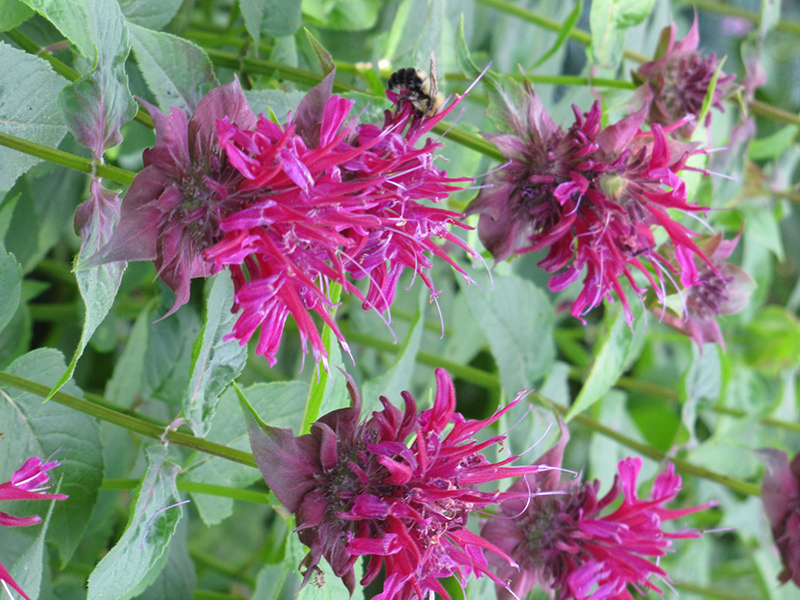Brunswick
422 Bath Road
Brunswick, ME 04011
1-800-339-8111
207-442-8111
Falmouth
89 Foreside Road
Falmouth, ME 04105
1-800-244-3860
207-781-3860
Cumberland
201 Gray Rd (Route 100)
Cumberland, ME 04021
1-800-348-8498
207-829-5619
Raspberry Wine Beebalm
Monarda 'Raspberry Wine'
Height: 3 feet
Spacing: 28 inches
Sunlight:
![]()
![]()
Hardiness Zone: 3a
Other Names: Bergamot, Oswego Tea
Ornamental Features
Raspberry Wine Beebalm has masses of beautiful clusters of fragrant crimson flowers at the ends of the stems from mid to late summer, which are most effective when planted in groupings. The flowers are excellent for cutting. Its fragrant pointy leaves remain forest green in color throughout the season.
Landscape Attributes
Raspberry Wine Beebalm is an herbaceous perennial with an upright spreading habit of growth. Its medium texture blends into the garden, but can always be balanced by a couple of finer or coarser plants for an effective composition.
This plant will require occasional maintenance and upkeep, and should be cut back in late fall in preparation for winter. It is a good choice for attracting bees, butterflies and hummingbirds to your yard, but is not particularly attractive to deer who tend to leave it alone in favor of tastier treats. Gardeners should be aware of the following characteristic(s) that may warrant special consideration;
- Spreading
- Self-Seeding
Raspberry Wine Beebalm is recommended for the following landscape applications;
- Mass Planting
- General Garden Use
- Naturalizing And Woodland Gardens
Planting & Growing
Raspberry Wine Beebalm will grow to be about 30 inches tall at maturity, with a spread of 32 inches. When grown in masses or used as a bedding plant, individual plants should be spaced approximately 28 inches apart. It grows at a fast rate, and under ideal conditions can be expected to live for approximately 5 years. As an herbaceous perennial, this plant will usually die back to the crown each winter, and will regrow from the base each spring. Be careful not to disturb the crown in late winter when it may not be readily seen!
This plant does best in full sun to partial shade. It is very adaptable to both dry and moist locations, and should do just fine under typical garden conditions. It is not particular as to soil type or pH. It is highly tolerant of urban pollution and will even thrive in inner city environments. This particular variety is an interspecific hybrid. It can be propagated by division; however, as a cultivated variety, be aware that it may be subject to certain restrictions or prohibitions on propagation.



